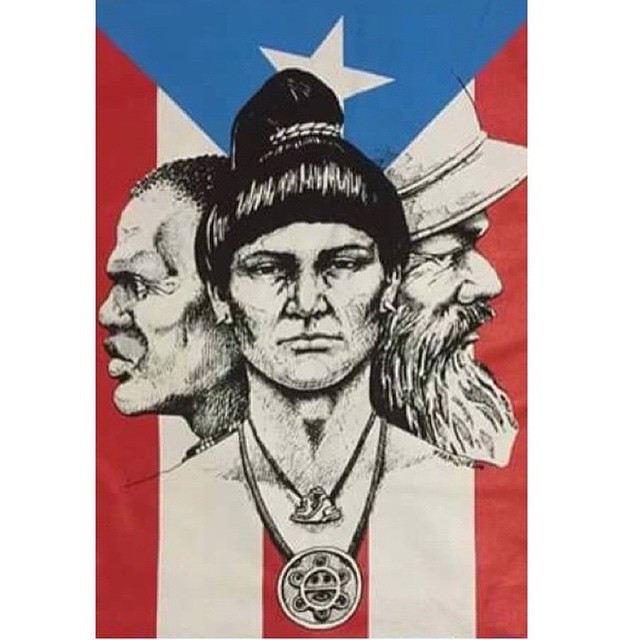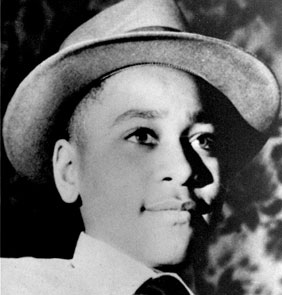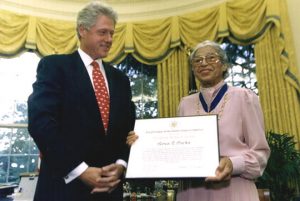In 1493, on his second voyage to the Americas, Christopher Columbus discovered Puerto Rico, an island that he named San Juan Bautista. On his first trip, Columbus, as we know, discovered La Española (Hispaniola), which is today the countries of Haiti and the Dominican Republic. In a failed attempt to reach La Española on his second trip, Columbus landed on Puerto Rico, where he was received by the Taíno Indians, who were of the same ethnic group as the people of La Española and the other islands in the Caribbean.1
Months after reaching the Island, the Spaniards started the process of colonizing the Taíno Indians, led by Juan Ponce De Leon, who was one of the conquistadors that came with Columbus. Later, in 1508, De Leon became the first governor of San Juan Bautista. During this process of colonization, the Taíno Indians did not show resistance because they believed the Spaniards were gods. The reason they saw the Spaniards as gods was because there had been a Taíno legend that spoke of a time when gods were going to rise from the water to give salvation to the Taíno. This legend facilitated the process of colonization for the Spaniards, since they did not encounter any native resistance. Within a short time they had created villages and colonies. By the beginning of the 1500’s, the Taíno natives were working in gold mines and plantations. In 1514, the Taíno decided to take matters into their own hands and rebel against their Spanish overlords. What resulted was one of the most brutal genocides in Latin American history. More than 25,000 Taíno Indians were murdered by the Spaniards on the Island of San Juan Bautista. This means that 85-90% of their population had been killed at the hands of the Spaniards. After the rebellion, the Spaniards noticed that the natives that had survived were not enough to fulfill their labor requirements. They decided to search for a new work force.2
After the massacre of 1514, the Spaniards noticed that they needed a new “work force,” as they called their slaves; so in 1518 they started importing African slaves from the Gulf of Guinea. The slaves started to reach the island later that year, and became the new “work force” of the Spaniards along with the small number of Taíno Indians that had survived the massacre. This caused more problems, since the Spaniards and the Africans brought a variety of diseases to the Island, such as small-pox and measles. Approximately two million Taíno Indians that lived on the islands of the Caribbean died from these diseases. By the late 1500’s there were no more Taíno Indians left on the island of San Juan Bautista; only the children of those who intermarried with the Spaniards and Africans survived. Of course, the Taíno, Africans, and Spaniards intermarried through time, and this is why Puerto Ricans today have such a diverse racial heritage; but the original Taíno racial group became extinct by around 1600. By that time the island of San Juan Bautista had become one of the most important colonies in the Caribbean. The Spaniards now had a way to export their products to the rest of the Caribbean and Latin America through this island, giving them an economical advantage. In less than thirty years the Spaniards took the Taíno land, men, women, and children, and virtually erased a whole population from the face of the earth. Most people consider Christopher Columbus as one of the greatest explorer to ever live, and as a hero of sorts, but have they taken into consideration the many civilizations in the Americas that have been affected by him? Not only the Taíno population, but also the Aztecs, the Incas, and many other societies throughout the Americas were affected significantly by this Columbian moment in history.3
- Roberto Marquez, “Sojourners, Settlers, castaways and creators: A recollection of Puerto Rico past and Puerto Rico present,” Massachusetts Review 36, no. 1 (1995): 94. ↵
- Robert M. Poole, “What Became Of The Taíno?” Smithsonian 42, no. 6 (October 2011): 58. ↵
- Byron Cannon, “West Indian Uprisings,” Salem Press Encyclopedia (January 2016): 583-586. ↵



64 comments
Marina Castro
Great article! Although it was short, the story is very well described and explained. Reading about Christopher Columbus was very interesting. I always find it interesting how he discovered a whole new continent without knowing it. Columbus thought he had arrived at India. Also, his intentions were to find new commerce routs only. He never knew about the impact he had made by arriving to America.
John Smith
I’ve noticed in recent years that Columbus has fallen from grace, but I don’t disagree with this change. Colonization was messy business to say the least and it only ever benefited the European invaders. Although modern American democracy has risen from Europes “influence” I don’t believe that we have to teach Columbus or colonization in good light. That said history isn’t a story of good and evil, but I doubt that many can justify the slaughter of the native people and their culture.
Tyanne Pearcy
I’ve always heard of Christopher Columbus discovering the New World but never finding Puerto Rico on accident. The most interesting part of the story is how the Taino Indians saw the Spaniards as gods but soon wanted to take matters into their own hands. This resulted in a massacre killing of the Indians which makes me question why they thought that was a good idea in the first place. It seems as though Columbus was more of a taker than a provider. Columbus has always been perceived in a good connotation but the question is, should he actually be?
Luis Magana
I had a good idea of the person Christopher Columbus was and what he did to the Native Americans living in Puerto Rico when he discovered it by accident in his search for the new route to India. Its sad to see how the Native Americans were just overlooked and weren’t given the respect they deserved. They were just killed because they were seen as an obstacle instead of human beings.
Christopher Hohman
Liked the article. It is unfortunate that the Native Americans were taken advantage off and oppressed by the Spaniards. It is even more unfortunate that the Spaniards brought disease with them. It is true that they were enslaved, but most of the death was a result of contact with the Spanish and not necessarily just enslavement or genocide. It is important to remember, I think, that the Spanish (and British) as cruel as they may have been, were genuine empire builders. They spread their religion, mixed their culture and their language, and shared their system of government with those they encountered.
Hector Garcia
As most people now, the Spaniards might have been the civilization that encouraged colonization in the New World. The story of the Taino people seemed really interesting because it showed what they had to endure and how the original Taino racial group became extinct in the 17th century. Overall, I thought this was a great article because it showcased the author’s ability to narrate a part of the history of Puerto Rico.
Samuel Ruiz
Great article! I had honestly never read up on Christopher Columbus other than what was necessary years ago. I still cannot get passed the fact that early explorers were able to tell that they were on a different area of land than expected from a prior voyage. It still saddens me that many Native Americans were killed by Spaniards as if they were not people at all.
Sofia
I enjoyed reading this article. I find very curious the fact that Columbus found America by accident while he was looking for a new route trying to get to India. And how unfortunate for the Native Americans to be part of less developed societies, that is what did not allow them to survive as an independent group but ended up in a great diminution of the population and the mixture of both societies.
Tyler Sleeter
Love this article! Lots of great information. I grew up with a dad who calls Columbus Day, Small Pox Day and taught all his history students what really happened as a result of Columbus “discovering America.” Even so I had never heard of the Taino Indians and I am saddened that their entire population was killed off by the Spaniards. It seems to me that had they not had the legend of the Gods rising up out of the water, they might have put up more resistance when the Spaniards first arrived, although knowing the strength of the Conquistadors, it probably would not have mattered. However, it is interesting to me to see how the multiple cultures came together to create the modern culture of Puerto Rico.
Edward Cerna
This was a great article and I am glad that I came across it and read it. It is sad how they just wiped them all out over a really short period of time. This article was very informing and the research was done really well so good job on that. I really had no idea that this had happened and now that I have read this I am well informed on the subject.